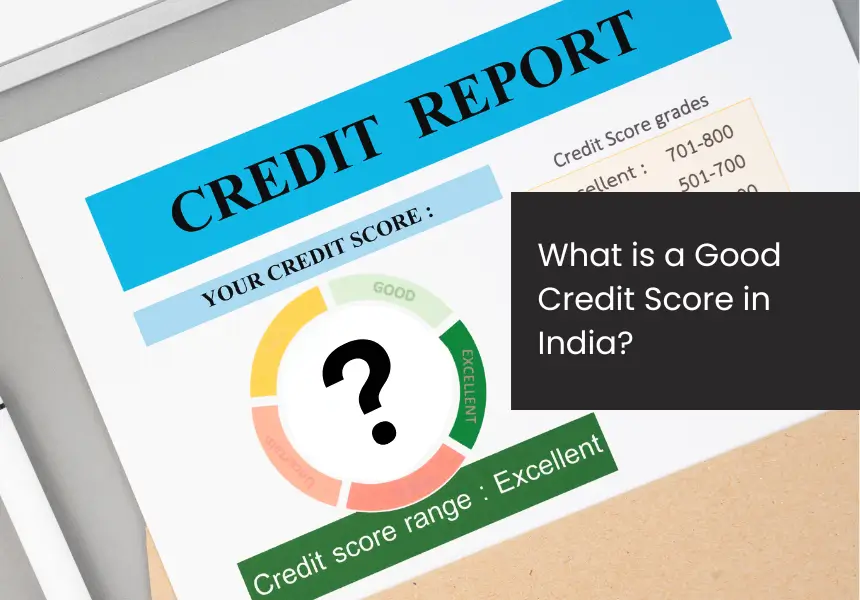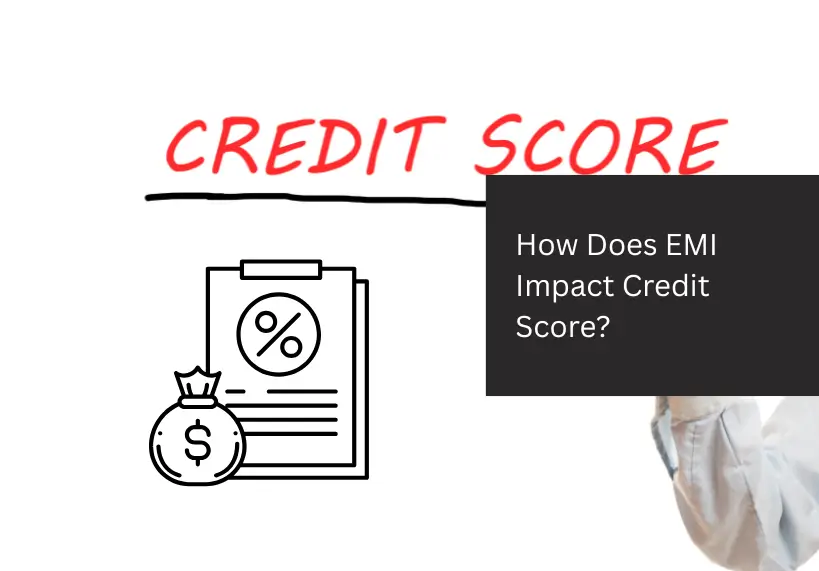
The credit score is a three-digit number that shows your ability to manage credit responsibly and repay debts on time. Whether you are planning to apply for a loan, a credit card, or any other financial product, your credit score can be the deciding factor between a quick “approved” and a frustrating “rejected”.
In simple terms, a good credit score helps secure better loan terms and quicker approvals. However, not everyone has the same credit score, and while the ranges for a good score generally remain consistent, the specific benchmarks for eligibility depend on the lender and the credit bureau’s scoring model.
But how do you know if your score is “good enough”? And what does it take to get there?
Keep reading to understand what a good credit score is, why it is important, and what you can do to build and maintain one.
Credit Score Ranges
A credit score reflects your financial behaviour and creditworthiness. This score helps banks and other financial institutions evaluate the risk of lending money. Credit score ranges are usually divided into categories that indicate different levels of creditworthiness, helping both lenders and borrowers understand where they stand.
In India, credit scores usually range between 300 and 900, with higher scores representing better creditworthiness.
Understanding these ranges allows you to assess your financial health and make improvements if needed. You must regularly monitor your credit score and maintain healthy financial habits, such as making timely payments and keeping your credit utilization low, which can help you improve your score over time.
Credit Score Range Table
By knowing your credit score range, you can plan your finances effectively and secure better credit opportunities. To help you understand which is a good credit score range, we have divided the ranges and described what each range means.
| Credit Score | Category | Description |
| 300 to 650 | Poor | High risk of credit rejection, requiring efforts to rebuild the credit score. |
| 651 to 700 | Fair | Considered as ‘subprime’ borrowers who face challenges in qualifying for new credit due to the risk of default. |
| 701 to 749 | Good | Eligible for loans and credit cards, with room for credit score improvement. |
| 750 – 799 | Very Good | Good credit history with a high likelihood of credit approvals. |
| 800 – 900 | Excellent | Low-risk borrowers with a strong credit profile, making it easier to secure loans on favorable terms. |
Understanding these ranges can help you identify areas to improve and work towards better financial opportunities. By maintaining responsible credit habits, you can move closer to the “Excellent” category and enjoy the benefits of a good credit score range.
Benefits of Having a Good Credit Score
A good credit score is not just about borrowing, it reflects responsible financial habits that lead to long-term benefits. Building and maintaining a high score requires discipline, but the rewards are well worth the effort.
While we have already discussed why having a good credit score number is important, let’s look at some common benefits it brings along.
1. Access to Loans with Lower Interest Rates
A good credit score range allows you to secure loans at competitive interest rates. Lenders consider applicants with a high credit score as low-risk and offer them better loan terms. Even a small reduction in interest rates can help save a significant amount over the loan’s tenure.
2. Faster Loan and Credit Card Approvals
Maintaining and building a good credit score can help you get faster approvals on loans which can be especially advantageous during financial emergencies.
3. Higher Credit Limits
You can secure higher credit limits if you have a good credit score, as it provides proof of your ability to manage credit responsibly.
4. Better Negotiation Power
Whether it is lower interest rates or better loan terms, a high credit score may allow you to negotiate with the lender.
5. Pre-Approved Loan Offers
Good credit scores can help you receive pre-approved loan offers from banks and financial institutions. These loans come with easy processes and can be a quick solution for immediate financial requirements.
6. Easier Visa Processing
Certain countries assess your financial stability as a part of their visa application process. A good credit score enhances your credibility, improving your chances of visa approval.
Tips for Maintaining a Good Credit Score
You must have a healthy credit score to gain access to various forms of credit at favorable terms. Here are some effective strategies that will help you stay within a good credit score range:
1. Monitor Your Credit Utilization Ratio
Your credit utilization ratio is the percentage of the credit you use against the total credit limit available. You must aim to keep this ratio below 30% to maintain a healthy score.
2. Avoid Cancelling Old Credit Cards
Older credit cards contribute to a longer credit history, which positively impacts your credit score. Even if you don’t use an old card regularly, keep it active and ensure timely bill payments. A consistent history of repayments will help you maintain a good credit score.
3. Check Eligibility Before Applying for Loans
Applying for loans without verifying the eligibility criteria can lead to loan rejections, which may lower your credit score. You must always assess your eligibility before submitting an application to avoid unnecessary hard inquiries and maintain your score.
4. Review Your Credit Report Regularly
Errors in your credit report, such as unrecorded loan closures, can negatively impact your score. Regularly reviewing your report helps you identify and correct discrepancies promptly, maintaining your creditworthiness.
5. Avoid Multiple Loans Simultaneously
Applying for several loans at once can portray you as a high-risk borrower and desperate for funds. It is better to prioritize your needs and take one loan at a time with a lender where you fall into the eligibility criteria. This measured approach helps maintain your credit score.
6. Pay Bills and EMIs on Time
Late payments on your credit card bills or loan EMIs can lower your credit score. To avoid missing the due date, you can set up automatic payments or reminders. Making timely payments reflects positively on your financial behavior.
7. Maintain a Diverse Credit Mix
It’s better to have a balanced credit portfolio that includes credit cards, secured loans (e.g. home loans), and unsecured loans (e.g. personal loans) to showcase responsible credit management.
8. Monitor Co-signed Loans
If you’ve co-signed a loan, ensure the primary borrower makes timely payments. Any delays or defaults will affect your credit score as well, so stay informed about the loan’s status.
9. Use Credit Responsibly
If you are planning to use credit for the first time, start with one credit product like a credit card or small loan. Use it wisely, ensuring timely payments to build a positive credit history.
Conclusion
A good credit score in India ranges between 700 and 900. Maintaining a high credit score not only helps you secure loans easily but may also help you get favorable terms, such as lower interest rates. By practicing financial discipline, such as paying your EMIs on time, monitoring your credit utilization ratio, and avoiding unnecessary credit inquiries, you can achieve and maintain a strong credit profile. Moreover, with a good credit score, you can opt for various financial products such as personal loans.
Speaking of personal loans, if you are looking for quick disbursals and convenience, LoanTap offers personal loans up to ₹10 lakh, ensuring a hassle-free experience with minimal documentation and fast approvals within 24-36 hours. LoanTap requires a minimum credit score of 700, making it easy for you to secure funds for your goals, be it a dream vacation, a medical emergency, or any other financial need.
Frequently Asked Questions
Which factors affect my credit score?
Your credit score is majorly influenced by factors such as payment history, credit utilization ratio, credit age, credit mix, and the number of hard inquiries on your profile.
Does checking my credit score affect it?
No, checking your own credit score (soft inquiry) does not impact your score. However, frequent hard inquiries by lenders can lower it.
What is the difference between CIBIL score and credit score?
CIBIL score, a type of credit score, is provided by the credit bureau TransUnion CIBIL. Whereas, the credit score is a broader term that includes scores from all credit bureaus like Experian, Equifax, and CRIF High Mark.
Can I get a credit card with a low credit score?
It might be challenging, but some banks offer secured credit cards against a fixed deposit for individuals with low credit scores.
What is the ideal number of credit accounts to maintain a good credit score?
There is no fixed number, but maintaining a mix of 3-5 credit accounts (such as loans and credit cards) and responsibly managing them can help build a strong credit score.
How much credit score is good in India?
A credit score of 750 and above is defined as good in India. It increases your chances of getting loan approvals or credit cards with favorable terms. Scores between 700 and 750 are decent, while scores below 650 may require significant improvement to access better financial opportunities.








